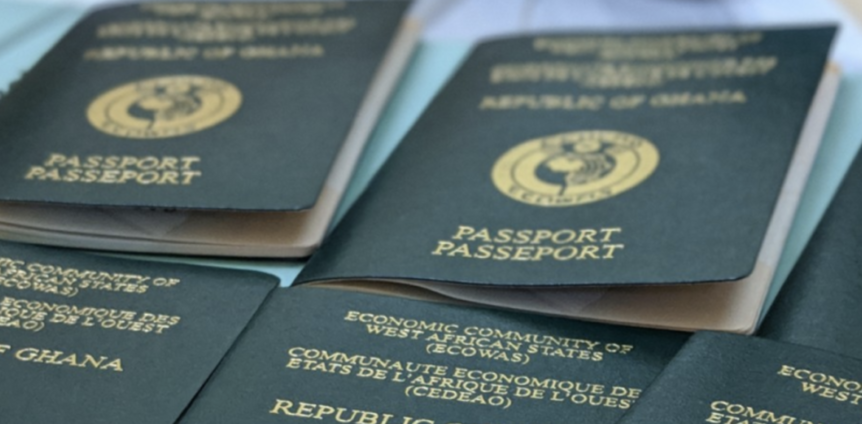The Ministry of Foreign Affairs and Regional Integration has announced plans to upgrade from biometric passports to new chip-embedded documents.
According to the Sector Minister, Shirley Ayorkor Botchwey, this initiative reflects a sincere commitment to efficiency, security, and compliance with international standards.
“While the current biometric passport has served us steadfastly for over a decade, the demands of a fast-paced technological evolution have necessitated this upgrade. As the gateway to Africa, Ghana must remain at the forefront of growth and development by implementing novel technological developments in security documents taking into account new international standards, threats, and growth prospects.”
Shirley Ayorkor Botchwey, speaking at a ceremony held at the Accra International Conference Center to launch the enhanced travel document, described the introduction of the chip-embedded passport as a "major milestone" in Ghana’s digitization agenda. She emphasized that the new features were carefully designed to enhance security and facilitate ease of travel for Ghanaian citizens.
The new travel document includes a microprocessor that stores the holder’s biometric and photo information, along with unique security features such as anti-fraud measures and both latent and patent indicators to ensure unimpeachable security.
“By the introduction of the chip-embedded passport, Ghana is poised to be at the forefront of modern technology within the African sub-region, shortening the turn-around time for passport issuance, while making travel safer, and more secure for all citizens,” the minister added.
The chip-embedded passport project, initiated in 2016, will be rolled out through a Build, Operate, and Transfer arrangement with Biometric Travel Solutions Limited, a private Ghanaian firm. This initiative aims to bring Ghana’s passports into full compliance with the International Civil Aviation Organization’s (ICAO) regulations and rapidly evolving global interoperability standards for biometric identification.
As part of the project, the Ministry has streamlined its passport application process to enhance efficiency and effectiveness at Passport Application Centres (PACs) and Ghana’s Missions abroad. The initiative aims to improve the overall passport application experience for citizens through the design, development, and implementation of an integrated online passport application and delivery system. It also includes enhancements to operational procedures, the introduction of suitable technologies, and the provision of necessary infrastructure to support PAC operations.
This modernisation effort is intended to minimize exploitation and extortion of citizens and make the activities of “Goro boys” a thing of the past.
Latest Stories
-
Bawumia to remove taxes on mobile phones to make them cheaper
33 seconds -
‘I wasn’t here’ – Lydia Alhassan denies sharing food despite being captured on camera at polling station
20 mins -
EC lifts media restrictions on access to collation centres on December 7
49 mins -
I want to prepare youth for global opportunities in digital space – Bawumia
58 mins -
Special voting: Voter arrested for attempting to photograph ballot at Ayawaso West Wuogon
1 hour -
Ada Traditional Council accuses media of misrepresentation and defends development efforts
1 hour -
IMF Board passes Ghana on 3rd programmme review; approves disbursement of $360m
1 hour -
AbibiNsroma Foundation engages media on just energy transition
1 hour -
AU Commission deploys observation mission to Ghana to observe elections
2 hours -
OSP investigators questioning witnesses over Lydia Alhassan’s food distribution at polling station
2 hours -
International Day of Persons with Disabilities: A call to dignity; embracing inclusion at the polls
2 hours -
RAIL partners persons with disability to develop assistive devices
2 hours -
Photos from Special Voting across Accra
2 hours -
Vivo Energy Ghana commissions in-house nursing facility to support expectant and nursing mothers
2 hours -
Road accidents are skyrocketing, NRSA alarmed
3 hours

